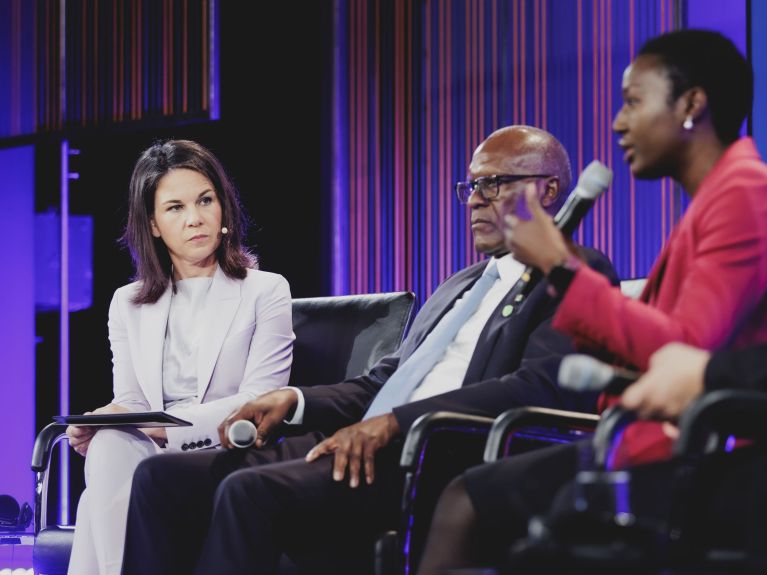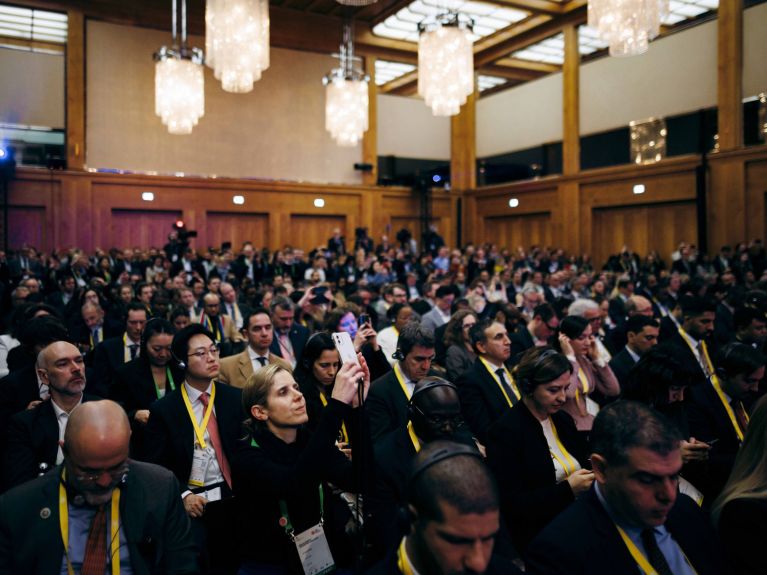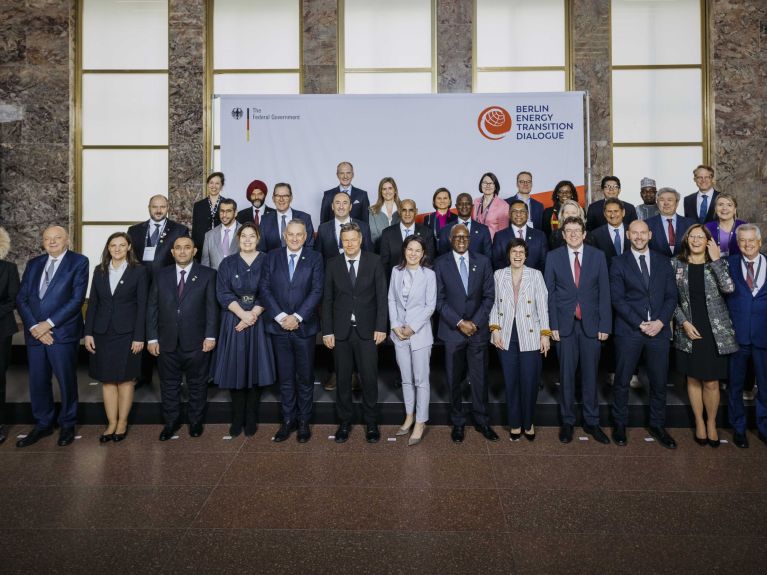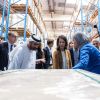How global climate targets can remain achievable
The tenth Berlin Energy Transition Dialogue (BETD24) is discussing in concrete terms how the COP28 targets can be met, and the financing of renewable energy that this requires.

The energy transition is a global challenge, but it has to be put into practice locally – and how this is done can vary greatly from one country to the next. If he were speaking to an African audience, said Namibia’s Energy Minister Tom K. Alweendo at the grand opening panel of this year’s tenth Berlin Energy Transition Dialogue, “half of them would be thinking: what energy transition are we actually talking about here? We don’t have anything to transform.”
To the general approval of the packed Weltsaal at the Federal Foreign Office, Alweendo was alluding to the fact that while the rich industrialised countries are busy switching from fossil fuels to renewable energy sources at record speed (an increase of 50 percent up until 2023), well over a million people in Africa still live without access to electric power at all. This is a worrying imbalance, as confirmed a little later by the Executive Director of the International Energy Agency (IEA) Fatih Birol, who cited another figure: only one percent of the solar power produced worldwide comes from Africa at the moment. “That’s the same amount as is currently produced by the small northern European country of Belgium,” said Birol.

Climate protection means protecting a decent existence
The solution can only be to cater more closely to the specific needs of individual countries and regions. Under the motto “Accelerating the Global Energy Transition”, the conference is dedicated to the key issue of how the ambitious targets of the last Climate Change Conference COP 28 can now be met. In her keynote speech at the conference, Foreign Minister Annalena Baerbock said that COP28 had accomplished a remarkable feat with its cross-national commitment to the end of the fossil fuel era. In particular, the goal of tripling the global expansion of renewable energies by 2030 was a crucial interim target in terms of limiting global warming, she said. But, she said, the important thing was now to implement renewable energies wherever possible. “The question is how we can support each other in driving forward the expansion.”
This also means taking into account the complexity of climate protection, however. Climate protection did not mean protecting the climate, said Federal Economics Minister Robert Habeck in his opening remarks. “The climate itself doesn’t care if it’s ultimately a few degrees warmer. What is actually at stake is protecting people’s ability to lead a decent existence.” And this was where the social component of the energy transition came into play, said Habeck. “Our primary objective must be to combine prosperity with decarbonisation,” said Habeck. Germany was making a key contribution to this through its global energy partnerships said Habeck.

For a lot of climate projects, smaller is faster
How is this possible? Ndiarka Mbodji from Senegal argues in favour of a change of perspective when it comes to financing climate projects. Her company Kowry Energy Services installs solar power systems in rural regions in sub-Saharan Africa. “We have to think on a smaller and more local scale,” she says. “The usual financing channels via foreign development funds take far too long, with approval periods averaging 12 to 36 months. Instead, we need to empower local banks to grant loans to local projects.” Large numbers of swiftly approved, smaller-scale projects would ultimately produce better results than protracted large-scale schemes. Kowry is currently installing solar-powered water pumps in rural Gambia: 1,000 of these units are now up and running. “In this case, smaller is faster,” she says. The Nigerian Glory Oguegbu likewise favours low-threshold provision of renewable energies in a local context. Her company Renewable Energy Technology Training Institute (RETTI) trains specialists in the installation of solar systems and has provided some 25,000 families with access to electricity to date.
One word comes up again and again in this connection: derisking. The main reason for the still shockingly low level of renewable energy capacity in Africa has been identified as the equally low volume of private sector investment in this area. Bhupinder Singh Bhalla, State Secretary in the Indian Ministry of Energy, says that success can only be achieved if the risk involved in this type of capital flow is reduced. One of the reasons why his country has been so successful in developing renewable energy capacity is that it has managed to make the private sector less reluctant to invest by making capital flows highly transparent.
IRENA: expansion still too slow
Another reason why new ways of financing are urgently needed is that the pace of green energy expansion is still too slow – despite 2023 having been a record year. Rather than the 473 gigawatts of capacity achieved to date, 1,000 GW is in fact needed per year by 2030 to keep global warming below 1.5 degrees. This is what the International Renewable Energy Agency IRENA says in a special report presented at the BETD.
Incidentally, hardly anyone at BETD24 sees nuclear power as an option. “We’re simply running out of time,” says IRENA Director Francesco La Camera. “We need results quickly, and only renewable energies can give us that.”


